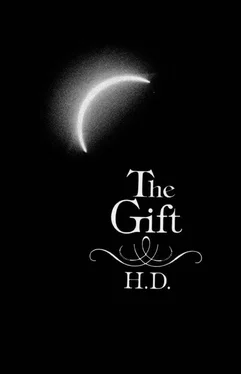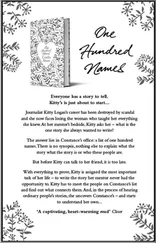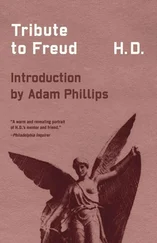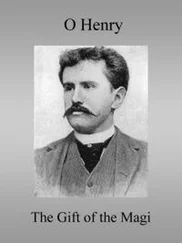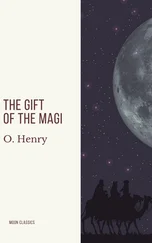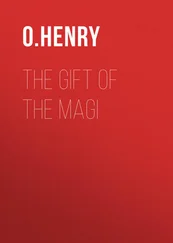

“Morning coffee, lunches and teas as usual unless a bomb falls on the building.” So read the notice at H. D.’s local restaurant, The Tea Kettle. Then, one morning: “more open than usual.” The waitresses were still sweeping up broken glass. And they were very apologetic. “Sorry, only cold cuts and salad today, we seem to have lost our gas main.” They provided good scalding tea, however — brewed on a camping stove. Life had to go on, and so it did; cheerfully and sometimes grumpily — unless and until a bomb fell on the building.
Bryher had moved into H. D.’s apartment — close quarters for two such turbulent spirits. To accommodate the material overflow she rented storage space in the basement. When the raids intensified, she hauled in two lumpy mattresses and created a private shelter. There they spent many noisy nights. As soon as the All Clear wailed, they went back upstairs, breakfasted, and started the working day.
Bryher was the housekeeper and provider: off early, heading every queue. She left the house with a clutch of empty string bags, and always managed to fill them. She returned laden like a pack pony. Then she went to her chaotic room— papers strewn all over the bed and under it, typewriter teetering atop a spindly tea table — and attended to her correspondence; average, twenty letters a day. She also wrote a novel based on the management and clientele of The Tea Kettle. And started another about the Battle of Hastings. With the door open, the telephone ringing, and Mrs. Ash the charlady mopping, and popping in for chats.
H. D. needed structure, total privacy, and the strictest schedule. Notebooks laid out in neat piles, pencils sharpened the night before. Everything ready, set to go — unless a bomb fell on the building. She got a good headstart while Bryher was off on her rounds, and finished before Mrs. Ash came. Two, three hours at the most. Every day, seven days a week. “Just going over some old stuff,” she said. “I don’t expect anything to come of it, but it’s healing to the psyche.” She volunteered no more, and I certainly wasn’t going to inquire. “When I talk about my work,” she once told me “it skids and shatters and gets away.” To this day, I never ask a writer what he or she is “doing.”
Normally a voracious reader and eternal student, she now found it hard to concentrate on her beloved books. There was plenty of time in the afternoons and during the long evenings, but the times were “disintegrating”—one of her key words. Her psyche refused to lose itself in the printed page. So she turned to needlework. It kept her hands busy and freed her mind to soar or to settle, to enjoy BBC concerts, to converse with her friends. She kept it in a floppy brown bag along with the wool — lovely soft skeins of every shade. She always brought it out after tea, and worked away while guests lingered on. When they left, she continued till dinner time. She completed an elaborate masterpiece which hangs on my wall. Strange hybrid animals prowl an overladen fruit grove. She started another. I have that too — same bag, same wool, undamaged by time or moth. I will finish it for her someday.
We were together one evening, just the two of us. She was stitching, lost in thought. I was reading. Bryher burst in on the peaceful scene to announce that the apple jelly had exploded and ruined her books. For some unexplained reason, she kept supplies in the back of her bookcase. A jar had leaked. Drama, consternation. A very special jar, Fortnum & Mason, prewar apple jelly, which she was saving for Edith Sitwell. Would it do? We sampled it on the spot. It had crystallized on top and turned runny at the bottom, and fermented; it was really quite nasty throughout. Edith would have to settle for black currant, as yet intact.
The incident triggered H. D.’s memory. Other apples, the orchards of Pennsylvania, the woods she wandered with her brothers Alfred and Eric. “Brothers …?” I interrupted. I knew Harold and Melvin; I knew of Gilbert, killed in the First World War. Here were two new uncles. Why had they never been mentioned? Were they undesirables, black sheep of some kind — or illegitimate? I was quite indignant.
“Only half brothers. My father’s first wife died and he married her sister.”
“You never told me—”
“Oh well, it was all so long ago and there seemed no point in bringing it up.”
Long ago and far away and enough reminiscence for the day. I left it at that. She never revealed much about her early background; she merely dropped bits of information now and then. My father was out of the picture, so my relatives were all on my mother’s side — and on the other side of the world, the States. A few of them came over. Uncle Harold and Uncle Melvin. And my grandmother and her sister, my great-aunt Laura, whom I loved dearly. They baby-sat when Bryher and H. D. traveled. But they both returned to the States when I was still a young child. Aunt Laura outlived my grandmother by a few years. I never saw either of them again.
My late grandfather sounded awesome. An astronomer. I visualized him as a bearded sage, like Copernicus in The Child’s Book of the Heavens .
Now, as I read The Gift I see that I wasn’t far wrong. Professor Charles Doolittle was “a path-finder, an explorer” so intent on his work that he literally froze to the telescope. His beard and whiskers had to be thawed out at regular intervals. The household revolved around him, especially the women. Everybody was understandably traumatized when he staggered home late one night, incoherent, bruised, and smeared with blood. Little Hilda never recovered from the shock, nor is the mystery explained within the context of the book. A letter was discovered recently. It appears that the Professor stepped off a moving trolley. Maybe he forgot to press the stop button, maybe the driver didn’t hear it. The passenger stepped off into space and took a nasty tumble. Anyway, he survived. His loved ones rallied and bandaged him and nursed him back to health.
Although he was a genius and a dominant figure, he seems to have been a man of great personal warmth. He cared deeply about his family and observed all the traditions — Christmas and birthday celebrations, summer excursions to huts and parks and lakes.
It was an extensive family. Five sons and a daughter, uncles and aunts and cousins, and old grandmother Mamalie. A distinguished family too.
Mamalie’s father. Grandpa Weiss, was a superlative clockmaker. He also played the trombone, and kept bees. We have inherited one of his clocks. It has traveled far — down through the generations, down to the Southern Hemisphere, following Uncle Melvin to his post in Buenos Aires; and back to New York and out to Long Island. A local artisan rebuilt it for us; he was greatly impressed by the beauty and craftsmanship. Outwardly, it has recovered from its sea changes. But we are chary of its mechanism and delicate balance, and unable to give it the full time attention it requires. So it stands in our parlor, a friendly silent presence, set at 7:15.
Uncle Fred was put to work in a drugstore — a singularly inept choice of career. All he cared about was music. Yes, they finally admitted, he had artistic gift. They let him follow his true vocation. He later founded the Bach Choir, and the famous Bach Festival, still an annual event in Bethlehem.
Читать дальше
